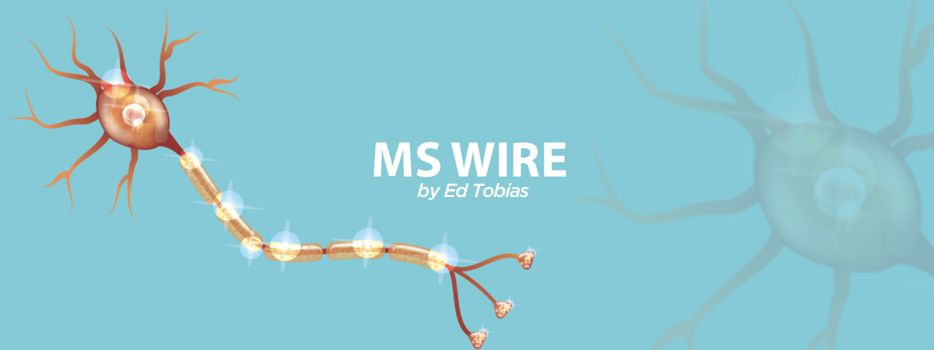MS News That Caught My Eye Last Week: More Tysabri Benefits, Long-term Ocrevus Data, Trial Diversity, MS and the Gut
Written by |

Tysabri Affects Immune System Beyond Known MS Target, Study Finds
Tysabri (natalizumab) slows multiple sclerosis progression by blocking some immune cells from entering the central nervous system, where they attack the myelin coating of nerves. Yet this study shows that Tysabri may also significantly reduce the number of proteins in the blood that trigger inflammatory responses. This may be an unanticipated secondary benefit of Tysabri.
Lower levels of pro-inflammatory immune signaling proteins were found in the blood of people with relapsing-remitting multiple sclerosis (RRMS) treated with Tysabri (natalizumab) and were associated with fewer relapses and less disability, a study has found.
The findings show Tysabri affects the immune system beyond its known target and support the use of the immune signaling protein interleukin-17 (IL-17) as a biomarker for disease activity and progression, the researchers noted.
Click here to read the full story.
***
Early Use of Ocrevus Best for Slowing PPMS Progression, Long-term Data Show
If you follow my columns, you’ll know that I believe in the hit it fast, hit it hard approach to treating MS. I wish disease-modifying therapies such as Tysabri, Lemtrada, and Ocrevus had been available much earlier in the course of my disease. This study provides more evidence to support my belief that fast and hard is the way to go.
Early and continuous use of Ocrevus (ocrelizumab) significantly slows disability progression and delays the time until wheelchair reliance in people with primary progressive multiple sclerosis (PPMS), new Phase 3 data spanning more than six years show.
Findings from the ORATORIO trial, comparing immediate use with a two-year delay, support Ocrevus’ sustained and long-term benefits, and highlight gains realized through earlier treatment initiation in PPMS patients.
Click here to read the full story.
***
New $100M Program Aims to Improve Diversity in Clinical Trials
This is important. Multiple sclerosis doesn’t look at race or gender when attacking someone. It’s becoming increasingly evident that it doesn’t discriminate by age, either. New attention is being paid to treating pediatric-onset MS, and as a 72-year-old, I wish more attention would be paid to treatments for older PwMS as well.
This program aims at providing more racial and ethnic diversity in clinical trials. But I wish the program would aim for a broader swath of PwMS who are underserved by clinical trials, namely those who are younger or older than the typical MS patient.
A new $100-million program aims to improve the diversity of participants in U.S. clinical trials with the ultimate goal of achieving better health outcomes and parity in care for underserved patient populations.
The initiative seeks to extend the reach of clinical studies to underserved populations in the nation’s urban and rural communities, and promote treatment development for all patient groups, the Bristol Myers Squibb Foundation and National Medical Fellowships announced in a press release.
Click here to read the full story.
***
Gut Immune Cells That Travel to Brain May Help Resolve MS Disease Relapses
Past research has shown a connection between some immune cells in our gastrointestinal tract and attacks on the myelin that coats our nerves. But this study reports some of these gut cells might do just the opposite, by producing molecules that ease inflammation. It seems to be another indication that what we eat may be important to people with MS.
A particular type of gut microbiota-reactive immune cells, called IgA-producing B-cells, travels to the brain of multiple sclerosis (MS) patients during relapses, where they produce anti-inflammatory molecules, a study shows.
The underlying mechanisms of this event and these cells’ role in MS remain largely unclear, but these findings suggest that specific gut immune cells may help resolve disease relapses in MS. They also expand on the diverse subsets of immune cells that scientists say are likely involved in the disease, either by promoting or suppressing MS-associated processes.
Click here to read the full story.
***
Note: Multiple Sclerosis News Today is strictly a news and information website about the disease. It does not provide medical advice, diagnosis, or treatment. This content is not intended to be a substitute for professional medical advice, diagnosis, or treatment. Always seek the advice of your physician or other qualified health provider with any questions you may have regarding a medical condition. Never disregard professional medical advice or delay in seeking it because of something you have read on this website. The opinions expressed in this column are not those of Multiple Sclerosis News Today or its parent company, Bionews, and are intended to spark discussion about issues pertaining to multiple sclerosis.



Leave a comment
Fill in the required fields to post. Your email address will not be published.